Can cats eat cheese? It depends. Cheese is a dairy product. Usually, dairy products are a no-no to animals, especially cats.
Most cats are said to be lactose intolerant. They won’t die when you try to feed them this type of food. However, feeding cheese might result in diarrhea. If you do need to feed your cat dairy products, like cheese, you should do it in moderation. Otherwise, your pet will surely suffer from a medical condition.
Can Cats Eat Cheese with Low Lactose?
The lactose in cheese is found in sugar. Even if you feed your cat’s low-sugar cheese, they can still be lactose intolerant. The only time that cheese might be safe for your cats is when they are still babies. Baby feline’s digestive systems contain lactase, an enzyme used to digest lactose. At birth, feline babies have plenty of such enzymes in their system. Thus, they can survive drinking their mother’s milk.
Kittens have the digestive makeup to break down and digest lactose, whereas adult cats do not. Kittens may be able to tolerate cheeses without issue, but this certainly does not mean you should continue giving your cat cheese his/her whole life. As kittens grow up, they tend to produce less of the enzyme needed to digest dairy products. As a result, their digestive system will have difficultly digesting lactose, causing them to become lactose intolerant.
Why Cats Produce Less Lactase?
As long as there is milk to be consumed, a feline’s digestive system will produce lactase. However, as the cats move on to solid foods and milk stops to be part of their diet, lactase production will also stop. When their body stops the production of such enzyme, it will never re-start.
Your cat no longer having the ability to digest this enzyme is not cause for concern. Naturally, cats are carnivores. They do not feed on milk and cheese. Thus, cheese and other dairy products have no part in their diet. Only kittens rely on mother’s milk, after this stage, milk is irrelevant in the diet of a cat.
However, just because your cat is lactose intolerant does not mean that you can never feed your cats cheese or milk. If you have been feeding your cat milk or dairy products since they were still babies and you have never stopped feeding them when they became adults, they might still have the ability to tolerate milk.
Digestions of cats vary just like the digestion of humans, but listen to the body of your cat when making the decision to offer dairy products. If your cat is known to have a sensitive stomach, do not offer milk and cheese. If your cat seems comfortable and does not have any reactions to dairy, then be comfortable feeding him/her on occasion.
The reason for some cats to tolerate milk while others do not is that their bodies might still produce lactase, although not much. Only a small amount is needed to digest the lactase, or at least digest the lactase without too much side effect. Then again, some cats are lactose-intolerant, even if you continuously feed them milk products. Your cat is unique and you should only follow the rules s/he sets forth with tolerance.
Is Your Cat Lactose Intolerant?
Now, you may wonder if your cats could or could not tolerate lactose. Start by offering only a small amount of cheese. If your cat likes the cheese, watch him/her for a while to discern if any side effects will be taking place. If your cat has a reaction to the cheese, monitor him/her and make note of any distressing behavior. If your cat does not tolerate the cheese well, it’s okay. Your cat will survive and should not need any medical attention.
You can start feeding your cat with small amount of cheese. Then, watch for the lactose-intolerant symptoms, such as stomach upset, diarrhea and cramps. Diarrhea is the main symptom that indicates your cat may be lactose intolerant. Your cat will produce runny or watery feces after eating cheese.
After that, your cat might lose appetite and might have a slight fever. This is natural and should be urged. Removing of the waste is removing of the ‘toxin’ that is dairy from your cats body. Not eating and having a fever will allow your cat’s body to naturally fight any potential side effect from eating dairy. During this process, simply make your cat comfortable and offer water to help speed the digestion and reduce discomfort.
If your cat asks for more, you may increase the amount. But you should only increase the amount of cheese served slowly. Before you feed her another piece, make sure that the previous one has completely passed through its digestive system. Increasing the serving size slowly allows you to determine how much cheese s/he is able to tolerate.
On the other hand, if your pet tolerates cheese well, you may give it an occasional plate of cheese as a treat. However, you should always remember that cheese contains high amount of calories. If your cat is on a diet, you should count cheese as part of its daily food intake.
In Moderation
Even if your cat does not develop symptoms of lactose intolerance after eating cheese, it is still essential that you feed him small amounts only. And when feeding cheese to your cat, make sure that it is low in lactose. There are lactose free brands of cheese available at specialty stores that may be a good option for your cat. You may also wish to ask your vet for a recommendation.
Some cat food brands contain cheese as part of its flavoring. While cheese may be the flavor in cat food, the food may not have actual cheese in it. Read the labels carefully and make sure that you choose a cat food that contains low amount of lactose.
Are There Benefits of Feeding Cheese To Cats?
Cheese is one of the good sources of protein. Then again, you should never feed your pet more than what it can consume. As mentioned earlier, this dairy product is fattening. If you don’t want your cat to be overweight, then you should limit its intake.
Cats do enjoy the taste of cheese. Thus, it’s a good way for you to give it as a tasty treat.
What Type of Cheese to Feed?
It doesn’t matter what type of cheese you feed to your cats as long as it’s low in lactose and that your cats can tolerate milk and cheese well.
Most cats, however, tolerate cottage cheese well. Some experts have said that the bacterium in cottage cheese helps in digesting lactose. Then again, it has to contain low amount of lactose.
Hard cheese contains less carbs but more fat. This also means that it has less lactose. Cheese can be a tasty treat for some cats; you may use it to slip a medication into the cheese. But make sure that you check this out with your vet first.
On the other hand, if your cat turns out to be lactose intolerant, you should never feed it dairy products, including cheese. No matter how much your cat begs, you should take his health seriously and never jeopardize it.
Related articles:
References:
http://pets.webmd.com/cats/guide/cats-and-dairy-get-the-facts?page=2
http://www.peteducation.com/article.cfm?c=1&aid=1029
http://www.cat-world.com.au/General-Cat-Articles/foods-cats-can-eat.html

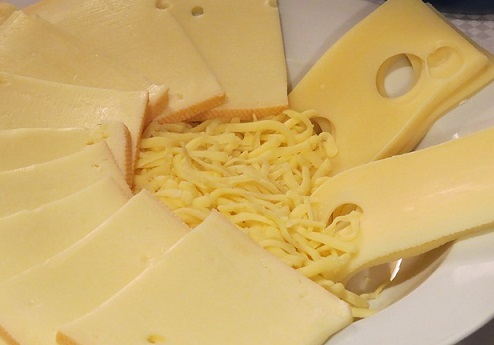
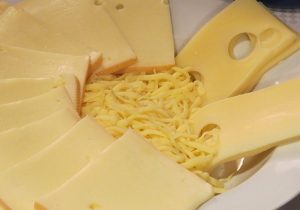
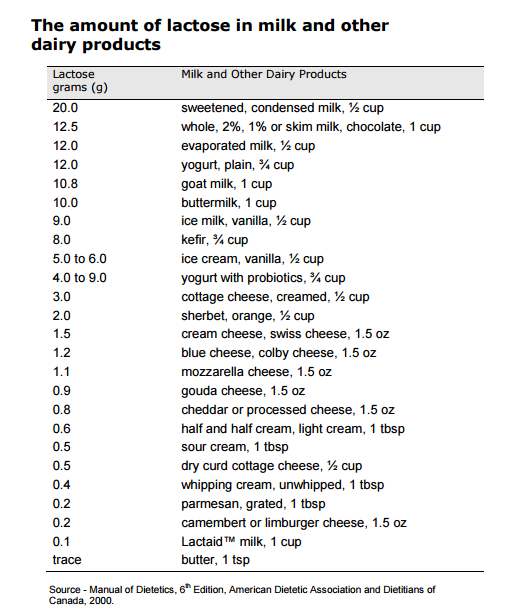

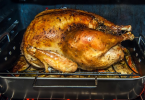

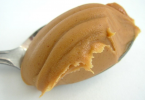
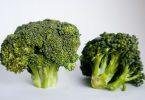
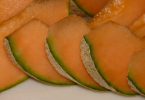
NO CHEESE! When did dogs learn how to type, humans, this dog lies! Cats can have cheese!!!?? My vet totally agrees,but don’t call him with this dog propaganda. Love your kitty?
Why do so many cat food companies sell food with cheese in it?
Apparently you can feed cats aged cheeses like cheddar because most of the lactose is converted to acid during the aging process. This applies only to hard aged cheeses like cheddar gouda or swiss and only in small amounts, like the amount found in various cat foods.
Avoid cheeses like: mozzarella, brie, cream cheese, cottage cheese, etc.
Can my cat have Lactose free cheese? I’m a lactose intolerant human so i have Lactose free everything, can my kitten/6months have lactose free cheese/milk in small amounts as well?